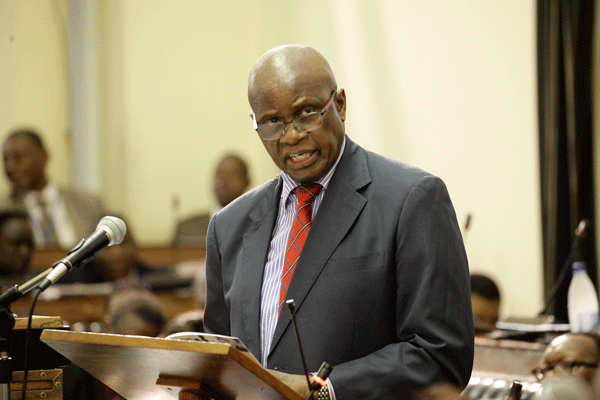
Zimbabwe incurred a budget deficit of $1,4 billion in 2016 as government propensity to spend resulted in the economy eating more than it gathered, latest Treasury statistics have shown.
BY NDAMU SANDU

In June 2016 the budget deficit was $623 million.
According to the fourth quarter Treasury Bulletin, expenditure for 2016 was $4,92 billion, made up of recurrent expenditure ($3,95 billion) and capital expenditure of $967,5 million.
Government had projected a budget of $4 billion with revenue for the year being $3,502 billion and $1550 million through borrowing.
Treasury said recurrent expenditure pressure during the year was emanating from employment costs, taking up 66% of total expenditure and about 92% of revenues.
The deficit was financed through borrowing from the domestic market via the issuance of treasury bills. The move crowds out lending to the private sector, thereby stifling new domestic investment and growth.
Resultantly, it creates a vicious cycle, whereby excessive government borrowing leads to poor performance of the private sector and, in turn, diminished future tax revenues.
- Chamisa under fire over US$120K donation
- Mavhunga puts DeMbare into Chibuku quarterfinals
- Pension funds bet on Cabora Bassa oilfields
- Councils defy govt fire tender directive
Keep Reading
Former Finance minister Tendai Biti said the increase in the budget deficit showed a lack of discipline and wanton expenditure.
“Zanu PF suffers from the broiler mindset. They just eat,” he said.
Biti said the increased budget deficit meant an increase in the domestic debt made worse by the fact that its source was recurrent expenditure.
“So government is stealing from the productive sector to spend and fund non-productive recurrent expenditure,” he said
During the inclusive government, treasury insisted on a balanced budget under the “eat what we gather” slogan.
Biti said treasury then used to run a “strict regime of austerity, discipline and strategic targeting of expenditure”.
In his 2017 national budget, Finance minister Patrick Chinamasa said increased recourse to the domestic financial system for financing of the budget deficit would become destabilising, as cash and cash equivalents available to government forced larger reliance on financing modalities that contributed to significant financial sector risks.
“This is with regard to both financial sector capacity to finance productive sector business activities, as well as the financial health of domestic banking institutions. This is more so, in view of the quantum of treasury bills already issued,” Chinamasa warned.
“In this regard, the fiscal framework for the 2017 budget discourages the expectation and perceptions that treasury bill issuances are now a form of surrogate currency to settle government expenditure, as doing so would only pose challenges of capacity for government to repay on such obligations.”
Zimbabwe’s economy has been in decline for over a decade due to government’s financial indiscipline and controversial policies.











